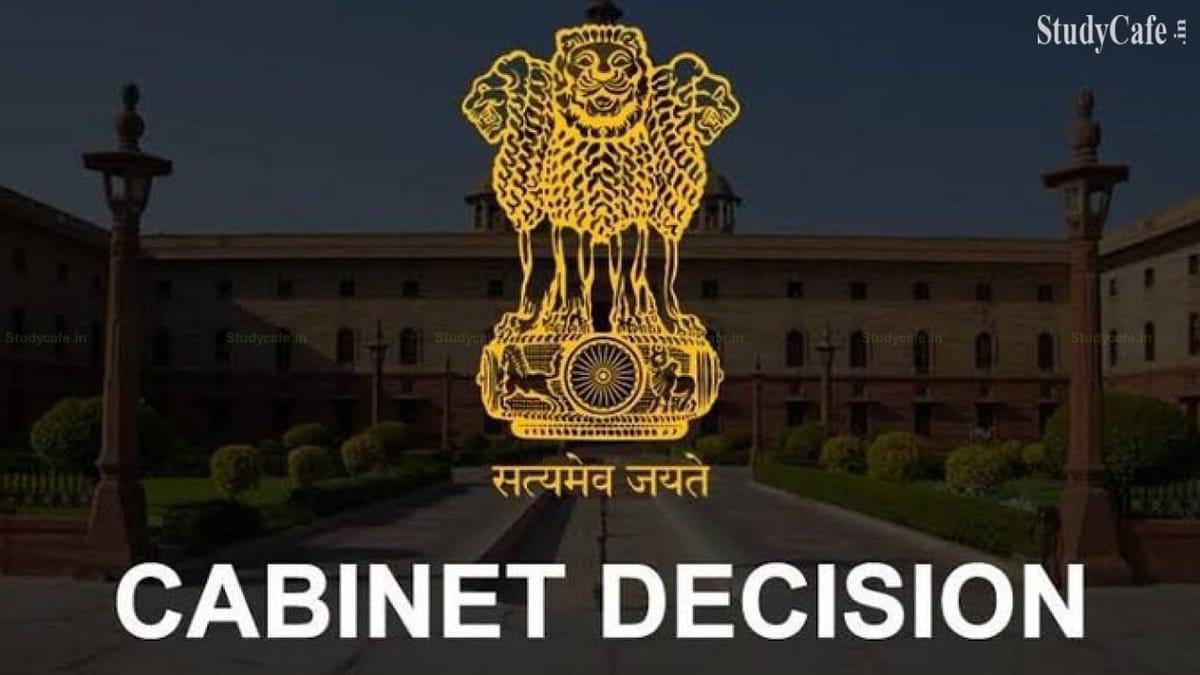Mehwish | Mar 30, 2022 |

Cabinet Approves USD 808 Million For “Raising and Accelerating MSME Performance”
The Cabinet has approved a budget of USD 808 million for “Raising and Accelerating MSME Performance.”
The Union Cabinet, chaired by Prime Minister Shri Narendra Modi, today approved a World Bank-funded programme on “Raising and Accelerating MSME Performance” for USD 808 million (Rs 6,062.45 crore) (RAMP). RAMP is a new programme that will begin in FY 2022-23.
Involved Expenditure:
The scheme’s overall cost is Rs.6,062.45 crore (USD 808 million), of which Rs.3750 crore (USD 500 million) would come from a World Bank loan and the balance Rs.2312.45 crore (USD 308 million) will come from the Indian government (GoI).
Point-by-point specifics:
“Raising and Accelerating MSME Performance” (RAMP) is a World Bank-supported Central Sector Scheme that supports the Ministry of Micro, Small and Medium Enterprises’ (MMSE) COVID Resilience and Recovery Interventions (MoMSME).
The initiative aims to improve market and credit access, build institutions and governance at the federal and state levels, improve federal-state connections and collaborations, resolve late payments, and help MSMEs go green.
The RAMP initiative will strive to scale up implementation capacity and MSME coverage in States, in addition to strengthening the MoMSME’s capability at the national level.
Major Impact, including the potential for job creation and the number of people who will benefit:
The RAMP programme will address the MSME sector’s generic and COVID-related difficulties by enhancing the impact of existing MSME programmes . particularly on the competitiveness front. Furthermore, the programme will strengthen the underserved areas of capacity building, mentoring, skill development, quality enhancement, technical advancement, digitization, outreach, and marketing promotion, among others.
RAMP will be a job enabler, market promoter, financial facilitator, and help vulnerable sectors and greening programmes through greater partnership with States.
In states where the presence of MSMEs is minimal, the programme will result in greater formalisation due to the greater impact of the RAMP-administered programmes. These States’ SIPs would serve as a road map for the development of a stronger MSME sector.
RAMP will support the Atma Nirbhar Bharat mission by fostering innovation and improving industry standards and practises, as well as providing the necessary technological inputs to MSMEs to help them become more competitive and self-reliant, increase exports, reduce imports, and promote domestic manufacturing.
As a result, RAMP would be a:
All 63 million businesses that qualify as MSMEs will profit directly or indirectly from the RAMP initiative, which has an influence across the country.
However, a total of 5,55,000 MSMEs are targeted for improved performance, with an extension of the target market to include services and an increase of roughly 70,500 women MSMEs expected.
Strategy and Objectives for Implementation:
Following the preliminary missions and studies, the programme has identified two result areas: (1) Strengthening Institutions and Governance of the MSME Program, and (2) Support to Market Access, Firm Capabilities, and Access to Finance.
Funds would flow into the Ministry’s budget through RAMP, based on Disbursement Linked Indicators (DLIs), to support continuing MoMSME programmes aimed at strengthening market access and competitiveness.
The World Bank will make funding available to RAMP only if the following Disbursement Linked Indicators are met:
i. Putting the National MSME Reform Agenda into Action
ii. Increasing Centre-State Collaboration in the MSME Secto
iii. Increasing the efficiency of the Technology Upgrade Scheme (CLCS-TUS)
iv. MSMEs’ Receivable Financing Market Strengthening
v. “Greening and Gender” delivery and improving the effectiveness of the Credit Guarantee Trust for Micro and Small Enterprises (CGTMSE)
vi. lowering the number of late payments
The creation of Strategic Investment Plans (SIPs), to which all states/UTs will be invited, is an important component of RAMP.
The SIPs would include an outreach plan for identifying and mobilising MSMEs under RAMP, as well as identifying key constraints and gaps, setting milestones, and projecting the required budgets for interventions in priority sectors such as renewable energy, rural and non-farm business, wholesale and retail trade, village and cottage industries, women enterprises, and so on.
An apex National MSME Council, led by the Minister for MSME, with representation from several Ministries and a secretariat, will be in charge of overall monitoring and policy oversight of RAMP. RAMP will be overseen by a programme committee chaired by the Secretary of MoMSME, which will keep track of the program’s specific deliverables. Furthermore, programme management units at the national and state levels, comprised of professionals and experts competitively selected from the industry, would support MoMSME and States in implementing, monitoring, and evaluating the RAMP programme on a day-to-day basis.
Covered states/districts:
All states and UTs will be invited to submit SIPs, and applications submitted under SIPs will be supported depending on their evaluations.
The funding would be based on objective selection criteria, and the SIPs would go through a rigorous process set up by MoMSME to be evaluated and approved.
Background:
The Government of India designed and recommended RAMP to boost MSMEs in accordance with the recommendations of the U K Sinha Committee, the KV Kamath Committee, and the Prime Minister’s Economic Advisory Council (PMEAC).
The preliminary proposal on RAMP was approved by the Department of Economic Affairs (DEA) during the 97th Screening Committee meeting. The World Bank then performed technical and fiduciary assessments, which were followed by Missions, comprehensive discussions with States and other stakeholders, and technical and fiduciary evaluations. Following that, an Expenditure Finance Committee (EFC) Note was created and distributed to the relevant line Ministries/Departments for their feedback. The EFC examined the Note during its meeting on March 18, 2021, and referred the proposal to the Cabinet for consideration.
In case of any Doubt regarding Membership you can mail us at contact@studycafe.in
Join Studycafe's WhatsApp Group or Telegram Channel for Latest Updates on Government Job, Sarkari Naukri, Private Jobs, Income Tax, GST, Companies Act, Judgements and CA, CS, ICWA, and MUCH MORE!"